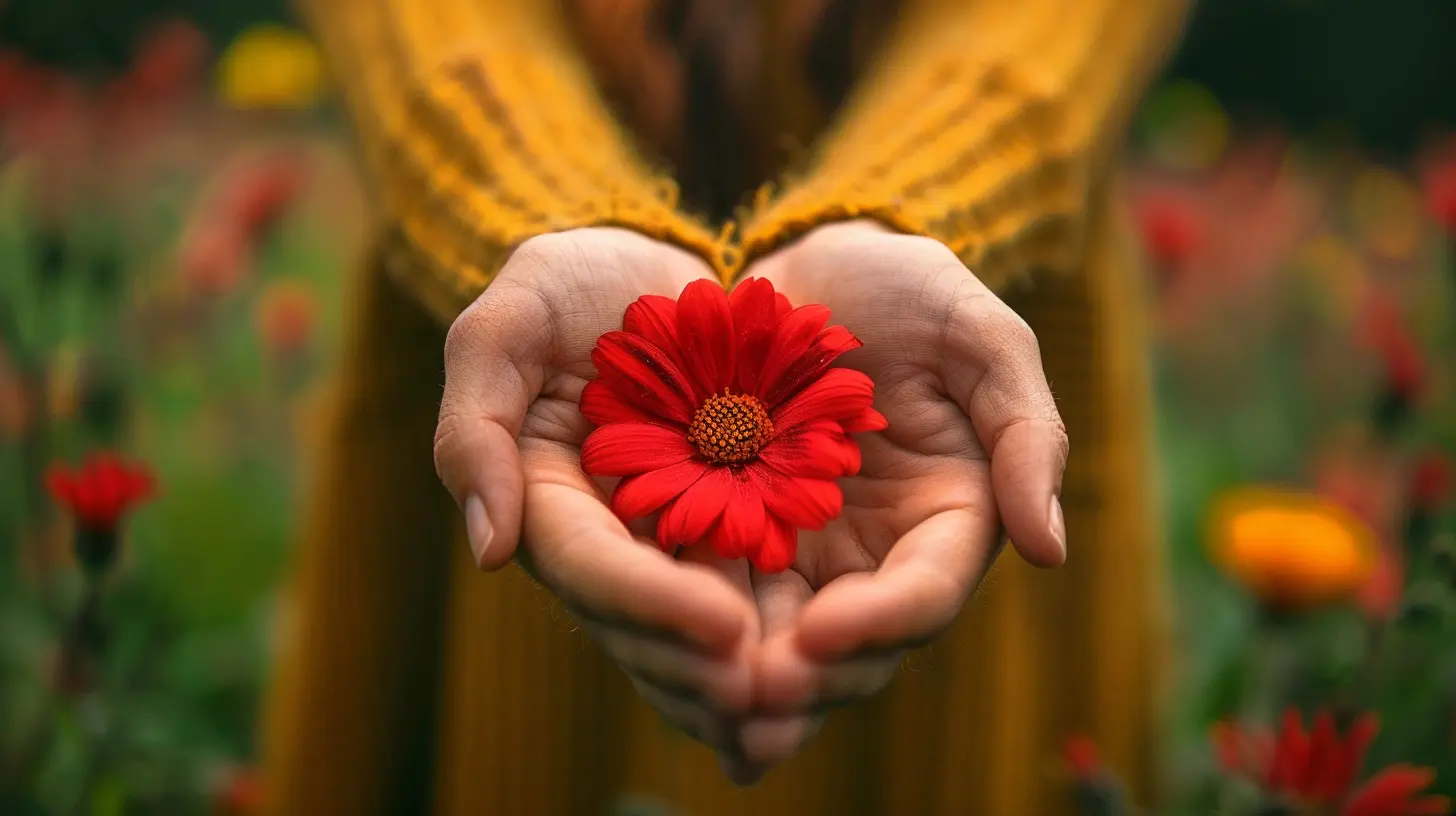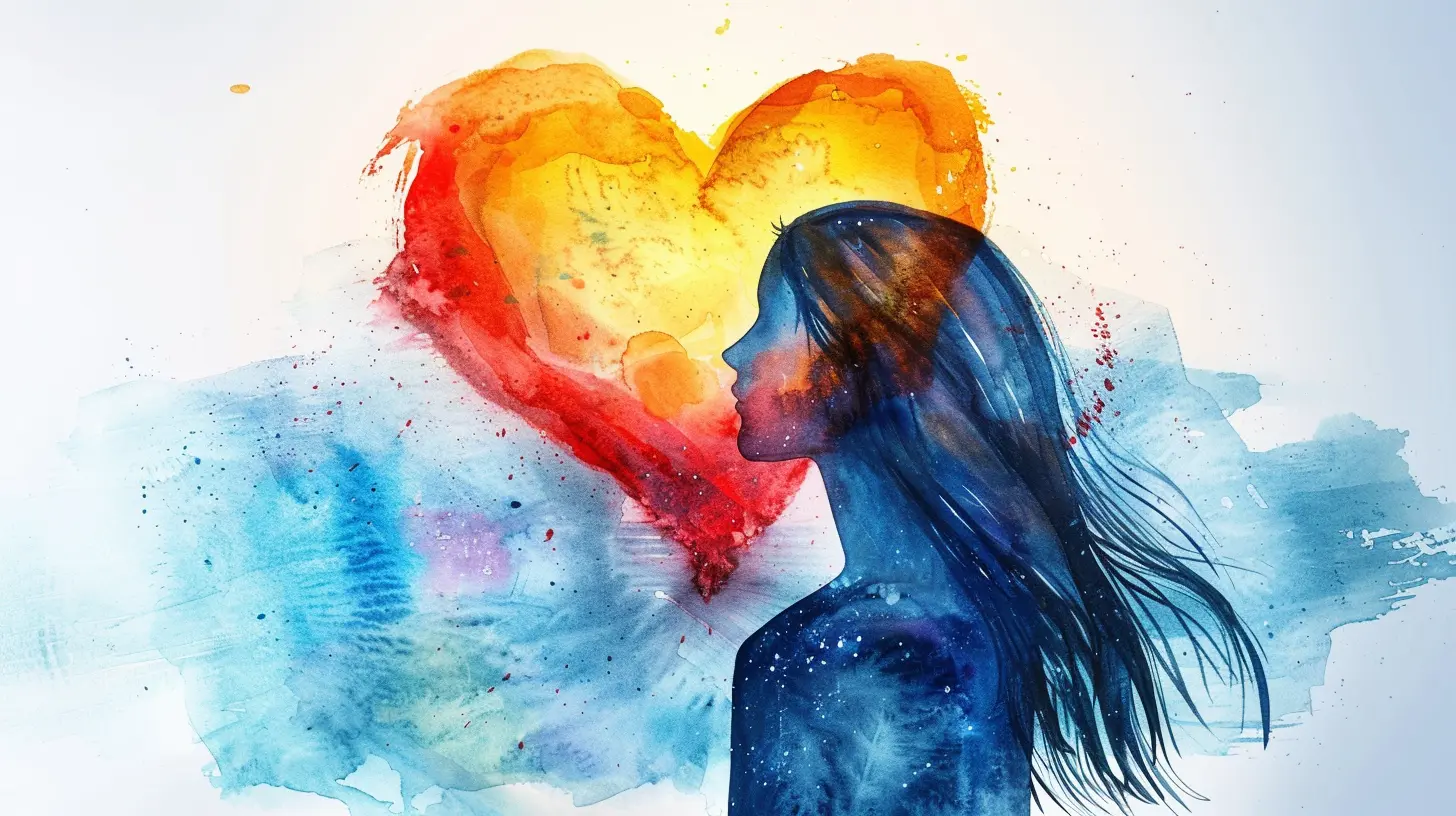The Science Behind Gratitude and Its Impact on Wellbeing
31 July 2025
Let’s be honest—life gets messy. Between chaotic mornings, stressful jobs, family demands, and the endless scroll of social media, it’s no wonder we find ourselves worn threadbare. But what if I told you that something as simple as saying “thank you” could help you bounce back, feel happier, and even sleep better?
Sounds a bit too good to be true, right?
But hold that thought. Science has been relentlessly studying gratitude, and the findings are pretty incredible. There’s an actual science behind gratitude, and it’s not just fluff or pop psychology. Gratitude can rewire your brain, reduce stress, and massively boost your overall wellbeing. And you don’t need to be a Zen master or live in a monastery to benefit from it.
Let’s dive into how gratitude truly works and why it might be one of the most powerful (and free!) tools to improve your mental, emotional, and even physical health.
What Is Gratitude, Really?
Gratitude is more than just saying “thanks.” It’s a mindset, a way of perceiving the good in life—even when things are far from perfect. It’s deeply rooted in appreciation, not just for what we receive but for the experiences, people, and even challenges that shape our lives.Think of it as putting on a pair of glasses that help you notice the little things: the smell of your morning coffee, a friend’s warm text message, or even the fact that today, you’re breathing and alive. Gratitude doesn't erase bad days, but it gives you a better lens to handle them.
How Gratitude Affects the Brain
The coolest part? Gratitude isn’t just emotional—it’s neurological.1. Activates the Brain's “Feel-Good” Chemicals
When you feel or express gratitude, your brain releases dopamine and serotonin—the two major neurotransmitters responsible for emotions like happiness and contentment. It’s like giving your brain a natural antidepressant.In fact, brain imaging studies using fMRI scans show that gratitude activates the medial prefrontal cortex, the same area associated with empathy, moral cognition, and reward processing. Basically, gratitude lights up your brain like a Christmas tree.
2. Rewires the Brain for Positivity
Ever heard the phrase “neurons that fire together wire together”? The more you practice gratitude, the more your brain starts to look for things to be grateful for. Over time, this positive feedback loop makes it easier for you to find the good—even when life is hard.
Gratitude and Mental Health: A Powerhouse Combo
Let’s talk real-life impact. Gratitude has been linked to measurable improvements in mental health.1. Reduces Stress and Anxiety
Feeling overwhelmed? Gratitude helps shift your focus from what’s wrong to what’s right. It lowers cortisol (the stress hormone), helping to calm the nervous system. Think of it as a mini mental pause button.A study from the University of California showed that participants who kept daily gratitude journals reported lower stress levels and better moods compared to those who didn’t. It’s like therapy—but cheaper.
2. Helps Combat Depression
Gratitude won’t magically cure depression, but it can be a helpful companion. One study found that when people wrote weekly gratitude letters, their depression scores significantly dropped after just four weeks. The act of identifying things to be thankful for helps create a sense of hope and connection—even in dark times.3. Improves Sleep
Tossing and turning at night? A gratitude practice before bed can help. One study revealed that writing in a gratitude journal for just 15 minutes at night helped participants fall asleep faster and sleep longer. Why? Because focusing on positive thoughts reduces intrusive worries and promotes peace of mind.
The Link Between Gratitude and Physical Health
Here’s where it gets even more fascinating. Gratitude doesn’t just affect your mind—it influences your body, too.1. Strengthens the Immune System
Grateful people tend to be healthier. Studies show they experience fewer aches and pains, are more inclined to exercise, and report feeling healthier overall. One possible reason? Lower stress levels support better immune function.Gratitude may not replace your vitamins, but it certainly adds a layer of resilience against life’s physical wear and tear.
2. Improves Heart Health
Heartfelt thanks may literally protect your heart. Research from the American Psychological Association found that people who practice gratitude have lower blood pressure, reduced risk of heart disease, and healthier heart rhythms.So yes—gratitude is heartwarming in every sense of the word.
Gratitude and Relationships: Building Deeper Connections
Human beings are wired for connection. And guess what strengthens bonds faster than almost anything else?You guessed it—gratitude.
1. Boosts Empathy and Reduces Aggression
Grateful people show more empathy and are less likely to retaliate when mistreated. It softens the edges of anger and makes us more patient and understanding. That’s a superpower in today’s tense world.2. Enhances Romantic and Social Relationships
Want to improve your relationship with your partner, friends, or coworkers? Expressing genuine appreciation increases trust, deepens intimacy, and builds mutual respect. It says, “I see you, and what you do matters.”Studies from the University of Georgia highlight that couples who express gratitude regularly enjoy stronger relationships and greater emotional connection. So go ahead—say thank you more often.
Simple Ways to Practice Gratitude Every Day
You don’t need to do anything fancy. There are so many easy, quick ways to weave gratitude into daily life.1. Keep a Gratitude Journal
Take five minutes a day to jot down three things you're thankful for. They don’t need to be big—sometimes, it’s the hot coffee, your dog’s goofy grin, or a stranger holding the door open. Small stuff matters.2. Gratitude Jar
Drop a note in a jar every time something good happens. Over time, you’ll have a collection of joy-filled reminders for the days you need them most.3. Verbal Acknowledgment
Say “thank you” and mean it. Whether it's to a friend, barista, or your partner—genuine appreciation goes a long way.4. Write a Thank-You Letter
Take the time to write a heartfelt letter to someone who made a difference in your life. Even if you never send it, the act alone is incredibly healing.5. Gratitude Meditation or Prayer
Spend a few minutes reflecting on things you’re grateful for. Breathe deeply, visualize them, and let that warm feeling flood your chest. It’s like emotional yoga.Gratitude Isn't About Ignoring Reality
Let’s clear something up. Gratitude doesn’t mean you have to be happy all the time or ignore problems. Life has ups and downs—gratitude helps you navigate them with a steadier ship.It’s not toxic positivity. You’re not pretending everything’s fine. You’re just choosing to see the whole picture: the pain and the beauty, the chaos and the calm.
In a way, gratitude helps you hold onto the light even when shadows creep in.
How Long Does It Take for Gratitude to Work?
Good question—it’s not instant magic, but it’s surprisingly quick.Some studies suggest noticeable emotional benefits after just two weeks of consistent gratitude practice. And within four to six weeks, many people report improved mood, sleep, and a greater sense of purpose and peace.
Consistency is key, though. Think of it like brushing your teeth—daily practice keeps your mental hygiene in check.
Can Anyone Be Grateful?
Absolutely. Gratitude isn’t reserved for the upbeat, spiritual, or naturally optimistic. It’s a skill. You can train your brain to notice the good, just like you train a muscle.Even in the darkest seasons of life, gratitude can be a flicker of light. And sometimes, that flicker is all you need to keep going.
Final Thoughts: The Ripple Effect of Gratitude
Gratitude is quiet, but it’s powerful. It won’t make your problems disappear, but it will change how you face them. That simple shift—from fear to appreciation, from scarcity to abundance—can improve your relationships, lift your mood, strengthen your body, and anchor you when the world feels shaky.So next time you're caught in the storm, try this: just pause, breathe, and find one small thing to feel thankful for. That’s where the magic starts.
You don’t need a perfect life to be grateful—you just need to start where you are.
all images in this post were generated using AI tools
Category:
Mental WellnessAuthor:

Angelo McGillivray
Discussion
rate this article
1 comments
Leona Larsen
Gratitude boosts mental health, enhances relationships, and promotes overall wellness.
August 14, 2025 at 12:48 AM

Angelo McGillivray
Absolutely, gratitude plays a crucial role in enhancing our mental health and fostering stronger connections with others, leading to improved overall wellbeing. Thank you for highlighting this important aspect!


